
For thus says the High and Lofty One
|

For thus says the High and Lofty One
|
I have read lots of books and listened to many sermons on the subject of “Holiness.” Most of the time I feel I am being exhorted to live a better life —by cleaning up as many externals in my behavior and in my daily “walk with God” --as many as I am aware of. Never mind that others see right through me and loyal friends see who I am more clearly than I do.
I do seem to have a perennial problem with ego inflation and self-righteousness and pride. See The Ego Papers.
Most of the time in learning new things about God I become puffed up and more self-righteous than before, comparing myself to everyone around me. They are less godly, obviously, I say to myself, and so I can rest contented with my current standing as a follower of Jesus. That is, until I stop and pray.
 Now Jacob went out from Beersheba and went toward Haran. So he came to a certain place and stayed there all night, because the sun had set. And he took one of the stones of that place and put it at his head, and he lay down in that place to sleep. Then he dreamed, and behold, a ladder was set up on the earth, and its top reached to heaven; and there the angels of God were ascending and descending on it.
Now Jacob went out from Beersheba and went toward Haran. So he came to a certain place and stayed there all night, because the sun had set. And he took one of the stones of that place and put it at his head, and he lay down in that place to sleep. Then he dreamed, and behold, a ladder was set up on the earth, and its top reached to heaven; and there the angels of God were ascending and descending on it.
And behold, the Lord stood above it and said: “I am the Lord God of Abraham your father and the God of Isaac; the land on which you lie I will give to you and your descendants. Also your descendants shall be as the dust of the earth; you shall spread abroad to the west and the east, to the north and the south; and in you and in your seed all the families of the earth shall be blessed. Behold, I am with you and will keep you wherever you go, and will bring you back to this land; for I will not leave you until I have done what I have spoken to you.”
Then Jacob awoke from his sleep and said, “Surely the Lord is in this place, and I did not know it.” And he was afraid and said, “How awesome is this place! This is none other than the house of God, and this is the gate of heaven!”
Then Jacob rose early in the morning, and took the stone that he had put at his head, set it up as a pillar, and poured oil on top of it. And he called the name of that place Bethel; but the name of that city had been Luz previously. Then Jacob made a vow, saying, “If God will be with me, and keep me in this way that I am going, and give me bread to eat and clothing to put on, so that I come back to my father’s house in peace, then the Lord shall be my God. And this stone which I have set as a pillar shall be God’s house, and of all that You give me I will surely give a tenth to You.” (Genesis 28:10-22)
After we have prayed and talked openly with God it is not unusual to sense—after the fact—that we had just been in the intimate presence of our holy God. Here are a few favorite resources to help you tune in to the living Lord. First, watch the helpful video by The Bible Project on Holiness.
Jacob's Ladder study by Dave Roper.
The book of Leviticus is probably most famous for being the place where many people stop in their reading through the Bible. It seems to be a book of strange ceremonies and sacrifices with many odd restrictions, problems of diet, and other difficulties which seem meaningless. But properly understood, Leviticus is one of the most beautiful books of the Bible. If you wish to understand Leviticus, one verse near the center of the book will help greatly, "You are to be holy to Me, for I the Lord am holy; and I have set you apart from the peoples to be Mine" (Leviticus 20:26). That is the purpose of the book of Leviticus. It details the way by which man is made holy enough to live in the Divine Presence and to enjoy a relationship so close that God will delight to say, "You are mine."
Don't be turned off by the word "holy" in this passage. Most people associate holiness with some kind of grimness. They react as did the little girl who happened to see a mule looking over the fence at her. She had never seen a mule before and she said to it, "I don't know what you are but you must be a Christian--you look just like grandpa." To many of us, "holy" people are those who look as if they had been steeped in vinegar or soaked in embalming fluid. But the Scriptures speak of "the beauty of holiness" (Psalm 29:2, KJV). True holiness is therefore something splendidly attractive.
The original root from which the word holy is derived is the same root from which a very attractive English word also comes. That word is "wholeness." Holiness, therefore, means wholeness, being complete. If you read "wholeness" in place of "holiness" everywhere you find it in the Bible, you will be much closer to what the writers originally meant. We all know what wholeness is. It is to have together all the parts which were intended to be there and to have them function as they were intended to function. Our modern expression "getting it all together" is very close to the root meaning of holiness.
The word "wholeness" has power to awaken desire within us. We long to be whole people. Who does not want to be what God made him to be, with all the ingredients of his personality expressed in perfect balance? That is what the book of Leviticus is all about. We are much aware of our own brokenness, of our lack of wholeness. We know how much we hurt ourselves and each other. We are aware of our inability to cope with life. We sometimes put up a facade and try to bluff our way through as though we are able to handle everything, but inside, most of the time, we are running scared. That is a mark of our lack of wholeness. We also know our diabolical power to irritate, to enrage and to inflame others--and even ourselves. But this great statement in Leviticus 20:26 declares that God knows all about human brokenness and hurt He knows that we are that way. He sees it in sharp contrast to His own wholeness, and His love reaches out and says, "You shall be whole, for I am whole."
Leviticus, then, is the story of how God has determined to heal man's brokenness and make him whole again; and He knows how to do it, for He says, "I have separated you from the peoples;" The reason we are so broken is because we are involved in a broken race. Our basic attitudes are wrong. Our vision of life is twisted and distorted. We believe in illusions and follow them as facts. We pursue phantoms and fantasies and delusions.Therefore, God must separate us from such thinking. He must break us loose from conformity to the thought patterns and attitudes and reactions of those around us. When He has straightened out our thinking and set our minds and hearts aright and corrected our tangled, fouled relationships, then we shall be whole as He intended.
This is a process which takes infinite patience and love, because we are so slow to recant. That is why God gave us this book of pictures. He starts in kindergarten with us. He begins with shadows and pictures as a kind of visual aid in order to show us what is the meaning of what He eventually does in history. Therefore, all the ceremonies and offerings of the Old Testament are fore-views and pictures of Jesus Christ. Leviticus is full of Christ. As He Himself said, "I am the way, and the truth, and the life; no one comes to the Father, but through Me" (John 14:6). Thus, these Old Testament sacrifices and rituals are the means by which believers before the cross laid hold of the full value of the work of Jesus Christ on their behalf. These men and women before the cross were as hurt and broken and fragmented as we are. They, too, needed Christ, and through these shadowy anticipations He was available to them. They may not always have seen the fulfillment of these things in Christ, but God did! Any Israelite who obediently and sincerely offered these sacrifices found that the reaction of the Spirit was to bring him to the same joy and peace that we have today. Read the Psalms and see how much David understood of the presence and the grace of God in his life. Some of these men and women of old were so taught of the Spirit that they actually foresaw the person and work of Christ as the great anti-type of the shadows with which they were involved. Thus, Jesus could say in John 8:56, "Your father Abraham rejoiced to see My day; and he saw it, and was glad."
But there's even more to see in a book like Leviticus. Since in Jesus Christ God took upon Himself the form of a man, and Jesus dwelt among us as a man--man as God intends man to be--therefore, everything that pictures Him also pictures us. Here in this book, therefore, we can understand our own humanity better than we can know it anywhere else. This book, then, becomes a penetrating study into human psychology, made all the more valuable because it is divinely guaranteed to be the truth about humanity. (The Way To Wholeness and Series on Leviticus)
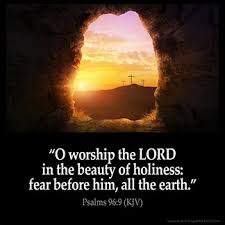
Rudolph Otto. “Otto was one of the most influential thinkers about religion in the first half of the twentieth century. He is best known for his analysis of the experience that, in his view, underlies all religion. He calls this experience "numinous," and says it has three components. These are often designated with a Latin phrase: mysterium tremendum et fascinans. As mysterium, the numinous is "wholly other"-- entirely different from anything we experience in ordinary life. It evokes a reaction of silence. But the numinous is also a mysterium tremendum. It provokes terror because it presents itself as overwhelming power. Finally, the numinous presents itself as fascinans, as merciful and gracious.” See also Wikipedia. A very moving experience of encountering the holiness of God occurred in the life of Isaiah the prophet when he was just beginning his long life of service for God. He lived out the rest of his life knowing he would be ignored and largely forgotten in history. See Isaiah as a Young Man.
I first became aware of the subject of the holiness of God while listening to young RC Sproul speaking from Ligonier, Pennsylvania. His book “The Holiness of God” (from 1985) is a favorite of mine to this day. I first heard of holiness from RC.
About 1965 my friend Bill Newton introduced me to Andrew Murray's classic The Holiest of All: An Exposition of the Epistle to the Hebrews.
Occasionally a Muslim seeks to persuade me that Allah is the one true god and has no rivals. I like to start our discussion by making a few comparisons between Allah the god of Islam, and Yahweh the God of Abraham, Isaac and Jacob. There are major differences.
The Bible declares that there is one, true God. He is a living Being, whole and complete. All other gods, all created beings are subject to Him.
And the Lord said to Moses, “Cut two tablets of stone like the first ones, and I will write on these tablets the words that were on the first tablets which you broke. So be ready in the morning, and come up in the morning to Mount Sinai, and present yourself to Me there on the top of the mountain. And no man shall come up with you, and let no man be seen throughout all the mountain; let neither flocks nor herds feed before that mountain.”
So he cut two tablets of stone like the first ones. Then Moses rose early in the morning and went up Mount Sinai, as the Lord had commanded him; and he took in his hand the two tablets of stone.
Now the Lord descended in the cloud and stood with him there, and proclaimed the name of the Lord. And the Lord passed before him and proclaimed, “The Lord, the Lord God, merciful and gracious, longsuffering, and abounding in goodness and truth, keeping mercy for thousands, forgiving iniquity and transgression and sin, by no means clearing the guilty, visiting the iniquity of the fathers upon the children and the children’s children to the third and the fourth generation.”
So Moses made haste and bowed his head toward the earth, and worshiped.” (Exodus 34:1-8)
Yahweh is a personal God. He enters into personal relationships (covenants) with individuals and with groups of people. Allah, on the other hand, is not a personal god. Muslims do not receive any assurance of forgiveness for their sins during their lifetimes, nor any inner confirmation that they are dealing with a living, personal, intelligent, responsive being.
But for most people living in American today, God is not personal. Whoever He is, He is not someone or something most moderns take seriously, at least until a crisis forces a change of mind and heart. Our own mortality ought to wake up sooner but often doesn't. We're actually all without excuse.
Muslims are strict monotheists and have difficulty understanding that God could be One, yet possess an inner plurality of Persons. Other people are polytheists (perhaps without realizing it). In religions where more than one god is supposed to exist, the gods are often male and female beings who are sexually active among themselves and sometimes with us mortals.
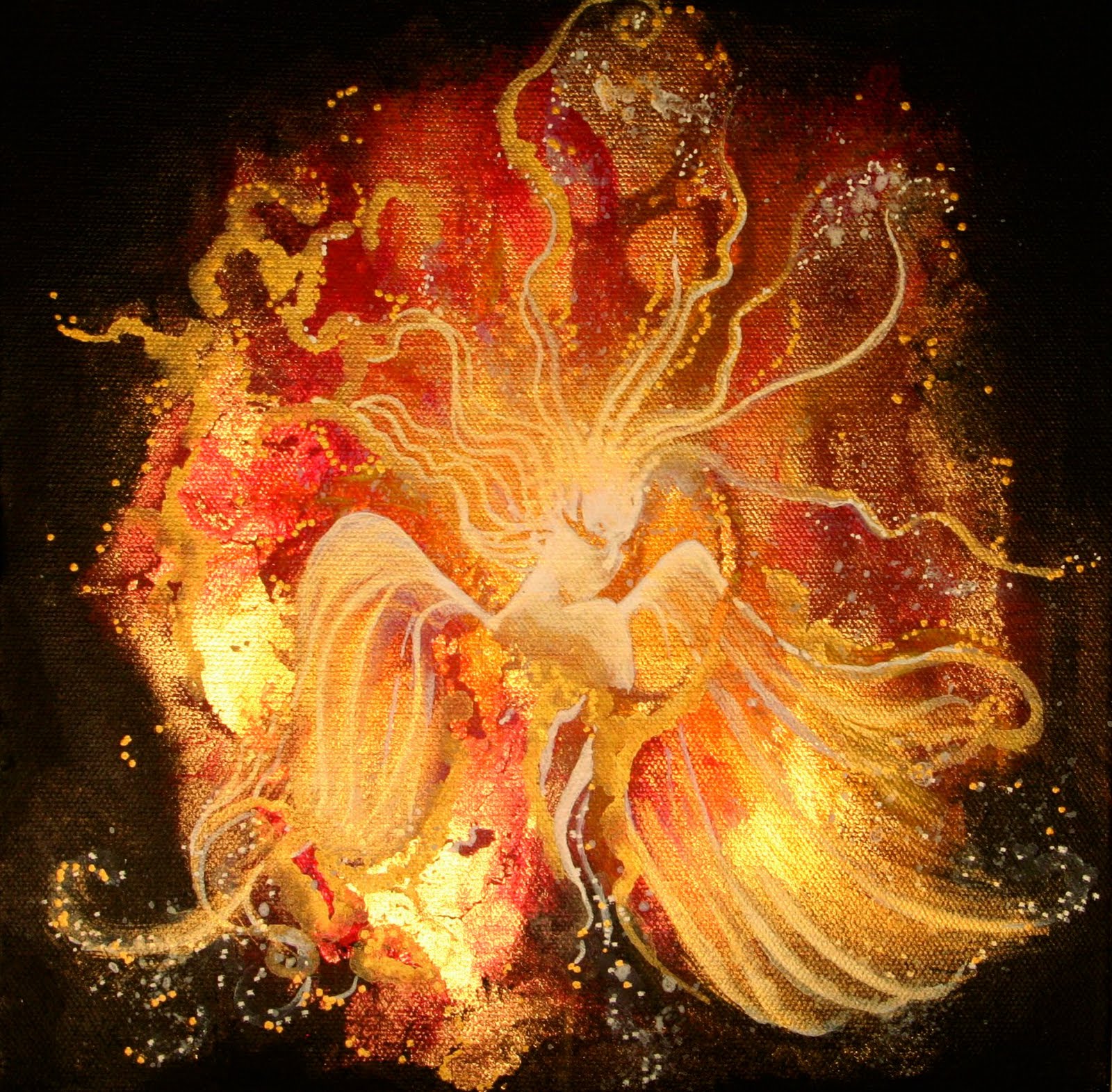 One can identify a number of pagan gods now controlling the cultures of the world from behind the scenes.
One can identify a number of pagan gods now controlling the cultures of the world from behind the scenes.
My friend Bryce Self is currently working with me on revising an Ancient article on Idolatry. See also Dave Roper on Idolatry and Covetousness is Idolatry
The pagan gods of then and now are frequently rivals of one another with a hierarchy, and with territorial boundaries or other limits to their power and rule. Some pagan gods are part human and part animal. But properly understood, the lesser gods are fallen angels. They are created spirits! See God and His Angels
A frequent failure of man down through history has been to lapse into the worship of the (angelic) host of heaven.
But consider a hypothetical universe where God was one person--one entity. Prior to creating anything, we can easily imagine that a one-person-god might eventually become, in time, a bit "lonely." In fact, when we think of "person" we always automatically think or more than one person(s). What would a one-personal god do with all his time if he had no companions? Surely he would be bored with no one to relate with? If that one-personal god then decided to created sentient beings--men and angels--how could he avoid creating robots and puppets who surely would soon also bore him? Without a consort, this god one-personal deity would have no equal. But if god were to have a consort, we already would have a universe of two gods. i.e., living under some form of dualism.
If a one-person god were all-powerful, why would he ask his subjects to bow to his wishes and demand that they live in subservience in all matters? Surely that would be a dull and unimaginative arrangement for all parties?
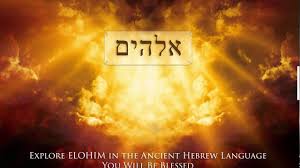 One of the other Hebrew names for the God of Abraham is Elohim. This important name is used in Genesis One--and a total of 2750 times in the Old Testament. Elohim is a plural noun which takes singular verbs--implying more than one Person in the godhead, a Being who always acts self-consistently ("in concert" or "by divine counsel").
One of the other Hebrew names for the God of Abraham is Elohim. This important name is used in Genesis One--and a total of 2750 times in the Old Testament. Elohim is a plural noun which takes singular verbs--implying more than one Person in the godhead, a Being who always acts self-consistently ("in concert" or "by divine counsel").
But it is only in the New Testament that we get a clear picture that the true God is Father, Son and Holy Spirit--three Persons yet one God. We only know this about God because He has chosen to reveal Himself to his creatures this way--it is not something we can discover by reason or scientific investigation. (In Hebrew El is singular, Eloah is dual, and Elohim is three or more). The One True God is described by different names in Hebrew.
See: The Names of God.
Consider the situation where no universe has yet been created, but a Three-Personal living God exists (eternally). The three Persons, we suppose, are equal, but not identical. Since all "personal relationships" we know about involving giving and receiving, initiating and responding, leading and following--it is easy to imagine that the Persons of the godhead are likely to be perpetually involved in some kind of totally fulfilling relationships amongst themselves. They evidently do not ever become bored with one another. Nor does a three-personal God need a creation. He is quite complete and whole in His own Being. This kind of God could exist with an inner dynamism which we can scarcely begin to imagine. When we add into this picture the additional information--which He has also revealed to us--namely "God is Love," then it is not difficult to imagine that each Person of the godhead lives not for Himself but for the other Persons within the godhead. This God can apparently not act selfishly as we do -- His love is always "self-giving."
Theologians discuss the interpersonal relations within the godhead under a heading called the “procession of the godhead.” Suffice it to say, each Person in the godhead is a complete individual, one of the Three. There are not three gods cooperating as a committee of three, but One God eternally existing in Three Persons. (See Wikipedia).
Outside of time and space the One God lacks nothing and is complete and fulfilled within His Being, lacking nothing. The subsequent creation of everything by God adds nothing to who He is. For this three-Personal God to decide to create a universe with men and angels in it, now takes on a whole new dimension. What if this God has chosen to allow men and angels to know Him and to relate to Him personally? Suppose we are invited somehow to "share in His love?" If the real God has chosen to make men very much like himself in terms of free-will, creativity, imagination, diversity--and the capability of loving and being loved--then He has given us created beings the highest possible honor.
Most of us know of good marriages between a male and a female of our created species. We are each offered greater intimacy than possible in marriage, in knowing God!
“And this is the testimony: that God has given us eternal life, and this life is in His Son. He who has the Son has life; he who does not have the Son of God does not have life.” (1 John 5:11-12)
Some non-Christian religions and cults imagine that man is already God, or somehow already a part of God. Others suppose they are capable of attaining "godhood" by some kind of path of trial and testing and good deeds. However, the Bible always makes a sharp boundary between the Creator and the created. God is separate from, and He transcends, all that He has created. He is holy and we are not.
Psalm 82 is sometimes used to argue that men are already gods. God has taken his place in the divine council; In the midst of the gods he holds judgment: (Psalms 82:1 RSV) Ray Stedman addresses this as follows:
This psalm deals with the judges of Israel, the human judges who settled disputes -- the Supreme Court, if you like -- of Israel. What the psalm is saying is that these men are acting as agents of God: God is in their midst; the judgment they pronounce is the judgment of God. The psalm clearly calls them "gods." Verse 6 of this Psalm, the verse Jesus quoted, says, I say, "You are gods, sons of the Most High, all of you; nevertheless, you shall die like men and fall like any prince." (Psalms 82:6-7 RSV)His argument is, "If men, plain vanilla men just like other men, who serve as judges and do God's work in that way can be called gods without blasphemy -- even the Scriptures do it and they cannot be wrong -- how can you accuse me of blasphemy when I claim to be a Son of God and do the work of God?" Many people think that that is all Jesus meant to claim: That all he is saying is, "I am just like these other men in the Old Testament who were judges. They could be called gods and weren't stoned for blasphemy, why, then, are you stoning me when I say I am a Son of God? The psalm says, 'You are the sons of the Most High,' so why should I be accused of blasphemy for saying the same thing?" Some of the scholars claim this is what Jesus is claiming -- that he is merely a man doing the work of God. But that ignores the words of Jesus here that go far, far beyond that. What he said was, "Do you say of him whom the Father sanctified. (consecrated), and sent into the world...?" That is a claim no mere man can make. He is saying, "I existed before I came to earth. Before I appeared as a man I existed. I came from God. I was sent of God. I was one with God." This, without doubt, is a claim for the sharing of deity. His argument then becomes, "If mere men who do God's work can be called 'gods' without blasphemy, how then can you charge one who is one with God and comes from God a blasphemer?" Mad man or God man? by Ray Stedman.
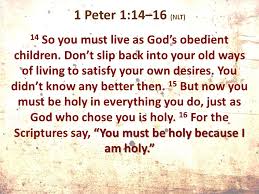
Though men are not real gods and can not become "God" the Apostle Peter says something amazing in this regard. Peter writes,
"God's divine power has granted to us all things that pertain to life and godliness, through the knowledge of him who called us to his own glory and excellence, by which he has granted to us his precious and very great promises, that through these you may escape from the corruption that is in the world because of passion, and become partakers of the divine nature." (2 Peter 1:3-4)
The New Testament shows in clear terms that normal humanity was designed to be indwelt by God. We human are incomplete without a relationship with a personal God. This is how God decided to create us! Granting men free will and allowing to know their Creator by means of personal relationships (one at a time) now opens marvelous possibilities for life and liberty among men. "You are complete in Christ who is the head of all rule and authority," Paul writes in Colossians.
God uses mostly masculine pronouns when speaking to us in Biblical revelation. But believers understand right away that the Biblical God is not a sexual bring--as the heathen gods usually are. The image of God in man can not be expressed by a male alone, but must be imaged to us by male and female together.
"Then God [Elohim] said, "Let us make man in our image, after our likeness; and let them have dominion over the fish of the sea, and over the birds of the air, and over the cattle, and over all the earth, and over every creeping thing that creeps upon the earth." So God created man in his own image, in the image of God he created him; male and female he created them. And God blessed them, and God said to them, "Be fruitful and multiply, and fill the earth and subdue it; and have dominion over the fish of the sea and over the birds of the air and over every living thing that moves upon the earth." (Genesis 1:26-28)
That is, the God of the Bible is as much "feminine" as He is "masculine"-- we must use these terms carefully when talking about the nature of God. God is not a sexual Being. He is Three Persons, not two. Men and women are identical in spirit but different in soul and in body. The interactions of the two sexes are not the interactions of two identical clones with one another, but relationships of unique persons who are designed to balance and complement one another. (See Made in the Image of God). Furthermore, no two human beings are identical. Each one of us is a unique creation--a work of exquisite art. Therefore the personal relationship each of us has with God is one-of-a-kind. Every friendship, every marriage, every relationship we have with another person, is also unique. God likes variety in His all creative handiwork--He did not make us a bunch of clones and we are far, far from being puppets or robots.
When we think of interpersonal relationships of any kind it is immediately evident that we are all constantly involved in both initiating and responding, giving and receiving. One can not have the one without the other. There also exists in life a response to match a stimulus, a responder to answer to the initiator. God Himself is also a "community of three persons." Therefore the true God is also the God of community. The importance of community is very important. God Himself is a member of the community. This is also part of His design for mankind. God participates fully in all aspects of His creation.
If God being a member of the community was not a very evident fact of life before the birth of Jesus, it is certainly clear from the New Testament that in taking on the form of a man, the Son of God, the second Person of the Trinity, has indeed joined Himself to our humanity. God's purpose in doing this is not only to accomplish our salvation from sin but to enable us to live together in community with Him forever more. God meets us through the man Jesus Christ as our Mediator, our Great High Priest, our Counselor, our Lover, our Friend. For instance, there are two Adams in the Bible: the first Adam, from whom we have all descended--and Jesus the Last Adam who heads a whole new race of humans. Christians can think of Jesus as their Elder Brother--among His many other attributes.
"Have this mind among yourselves, which is yours in Christ Jesus, who, though he was in the form of God, did not count equality with God a thing to be grasped, but emptied himself, taking the form of a servant, being born in the likeness of men. And being found in human form he humbled himself and became obedient unto death, even death on a cross. Therefore God has highly exalted him and bestowed on him the name which is above every name, that at the name of Jesus every knee should bow, in heaven and on earth and under the earth, and every tongue confess that Jesus Christ is Lord, to the glory of God the Father." (Philippians 2:5-11)
About this "family" the Bible has much to say! Once one begins to speak of a personal God who wants to know people personally and once we learn that this God has chosen to meet us through a fellow human being of our own race, Christian faith moves quickly and radically apart from all other religions. [Because of the Fall--man's rebellion against God--one becomes a true member of God's family by spiritual rebirth--but this does not release non-Christians from ultimate accountability to God as Creator, Lord and Judge of all.]
My friend Glenn Miller of the Christian Think Tank amazes me often with his erudite and thorough essays on every conceivable subject of theology imaginable. Glenn's recent 25 page "short" treatise is "must reading." Why can't God just forgive sin, instead of demanding justice? he asks. Glenn shows that our behavior as humans implies accountability to our Creator, but also so one another. We have major responsibilities to the community--and God is a member of the community. Our actions--public or private--affect our relationship with God--but also the entire community. There are no private deeds and actions we do that are innocuous---"we are all bound up together in the bundle of the living" to use an Old Testament metaphor.
The Law of Moses given to the Jewish people at Mount Sinai tells us what God is like as a Person. He is moral, just, holy, but loving and compassionate. Since He can not change, any outside "persons" who wish to live in a harmonious relationship with Him must find a way to adjust to what He is like. Briefly put, the writer of Hebrews says, "Strive for peace with all men, and for the holiness without which no one will see the Lord." (Hebrews 14:14)
At first glance, it appears that the Old Covenant (the Law of Moses) is ordering us to try to change on our own, and to make every effort to live up to the standards of Deity, by meritorious self-effort. Romans 3 sets us free from such a delusion--the Law was given to establish our deep need for grace and mercy. The Law also lets us know that we are to live daily in total dependence upon the Lord. We are quite incapable of any righteous deeds when running on our own steam.
The New Covenant, on the other hand, makes it possible for us to live in a harmonious personal relationship with God--because God changes us from the inside out, if we give Him permission to do so. This is a tall order! We all start out quite self-centered and self-seeking, and we must be changed into the likeness of a being who is self-giving.
But when Christ had offered for all time a single sacrifice for sins, he sat down at the right hand of God, then to wait until his enemies should be made a stool for his feet. For by a single offering he has perfected for all time those who are sanctified. And the Holy Spirit also bears witness to us; for after saying, "This is the covenant that I will make with them after those days, says the Lord: I will put my laws on their hearts, and write them on their minds," then he adds, "I will remember their sins and their misdeeds no more." Where there is forgiveness of these, there is no longer any offering for sin. Therefore, brethren, since we have confidence to enter the sanctuary by the blood of Jesus, by the new and living way which he opened for us through the curtain, that is, through his flesh, and since we have a great priest over the house of God, let us draw near with a true heart in full assurance of faith, with our hearts sprinkled clean from an evil conscience and our bodies washed with pure water. Let us hold fast the confession of our hope without wavering, for he who promised is faithful; and let us consider how to stir up one another to love and good works, not neglecting to meet together, as is the habit of some, but encouraging one another, and all the more as you see the Day drawing near." (Hebrews 10:12-25)
Every one of us understands quite a bit about relationships among ourselves--with parents, siblings, spouse, friends and enemies--from experience. We all learn to relate to other people by trial and error, both positively and negatively. Instinctively we know and sense what an interpersonal relationship is all about.
But, it is strange to me that I do not tend to deal with God the way I deal with other "persons" whom I know. Yet God is much more of a living Person than any other entity I interact with.
God is the very Author of life. All of life, at every level, has its source in Him. Yet, I worry most about what other people think of me. Everything I think or say or do--my entire history--is known to God. But I can easily be indifferent to what he thinks about me! Often I remind myself of what the Lord said to Samuel about King Saul, "Do not look on his appearance or on the height of his stature, because I have rejected him; for the LORD sees not as man sees; man looks on the outward appearance, but the LORD looks on the heart." (1 Samuel 16:7)
I know intuitively than I can not expect to enjoy a more intimate relationship with another person which goes deeper than the degree of intimacy I have attained in my personal relationship with Jesus. But my time alone with God is easily set aside, compromised, crowded out, by a thousand mundane matters, on a daily basis. (See http://ldolphin.org/Intim.html, http://ldolphin.org/relationships.html)
If we think we understand something about how two persons can relate with one another, imagine the intensity and vitality of the relationships the Three Divine Persons share with one another! For us to know God is to be drawn into God Himself, into union with Them.
See The Eightfold Way to Knowing God Through Jesus Christ.

"For one moment she had a ridiculous and scorching vision of a world in which God Himself would never understand, never take her with full seriousness. Then, at one particular corner of the gooseberry patch, the change came. What awaited her there was serious to the degree of sorrow and beyond. There was no form nor sound. The mould under the bushes, the moss on the path, and the little brick border, were not visibly changed. But they were changed. A boundary had been crossed. She had come into a world, or into a Person, or into the presence of a Person. Something expectant, patient, inexorable, met her with no veil or protection between. In the closeness of that contact she perceived at once that the Director's words had been entirely misleading. This demand which now pressed upon her was not, even by analogy, like any other demand. It was the origin of all right demands and contained them. In its light you could understand them; but from them you could know nothing of it. There was nothing, and never had been anything, like this. And now there was nothing except this. Yet also, everything had been like this; only by being like this had anything existed. In this height and depth and breadth the little ideal of herself which she had hitherto called me dropped down , and vanished, unfluttering, into bottomless distance, like a bird in a space without air. The name me was the name of a being whose existence she had never suspected, a being that did not yet fully exist but which was demanded. It was a person (not the person she had thought), yet also a thing, a made thing, made to please Another and in Him to please all others, a thing being made at this very moment, without its choice, in a shape it had never dreamed of. And the making went on amidst a kind of splendour or sorrow or both, whereof she could not tell whether it was in the moulding hands or in the kneaded lump.
Words take too long. To be aware of all this and to know that it had already gone made one single experience. It was revealed only in its departure. The largest thing that had ever happened to her had, apparently, found room for itself in a moment of time too short to be called time at all. Her hand closed on nothing but a memory. And as it closed, without an instant's pause, the voices of those who have not joy rose howling and chattering from every corner of her being.
"Take care. Draw back. Keep your head. Don't commit yourself," they said. And then more subtly, from another quarter, "You have had a religious experience. This is very interesting. Not everyone does. How much better you will now understand the Seventeenth-Century poets!" Or from a third direction, more sweetly, "Go on. Try to get it again. It will please the Director."
But her defences had been captured and these counter-attacks were unsuccessful." (C.S. Lewis, That Hideous Strength)


Solomon, by the way, says that contentment and happiness in life is a gift from God--and he givest these gifts only to those who choose to serve Him.
"...for apart from him who can eat or who can have enjoyment? For to the man who pleases him God gives wisdom and knowledge and joy." (Ecclesiastes 2:25-26a)
Our society today is crumbling rapidly. Families are falling apart. Close friendships are few and far between. Promises that one keeps and commitments that are honored--are rare.
People seem to have forgotten that God is a Personal God. What this means is that true community is almost gone as well. God, the Creator and Judge and Master of the community must inevitably move decisively to judge, to heal, and to restore that community. In the real world that means that some will be excluded in the time of renewing, and all of us will be judged and evaluated in the process.
"Seek the LORD while he may be found, call upon him while he is near; let the wicked forsake his way, and the unrighteous man his thoughts; let him return to the LORD, that he may have mercy on him, and to our God, for he will abundantly pardon." (Isaiah 55:6-7)

| What doth it profit thee to enter into deep discussions concerning the Holy Trinity, if thou lack humility, and be thus displeasing to the Trinity? For verily it is not deep words that make a man holy and upright; it is a good life which maketh a man dear to God. I had rather feel contrition than be skillful in the definition thereof. If thou knewest the whole Bible, and the sayings of all the philosophers, what should this profit thee without the love and grace of God? --Thomas a Kempis (1380-1471), Of the Imitation of Christ. |
Many today who believe they know God, take Him for granted!
A favorite writer on the subject of Holiness is the late R.C. Sproul. He wrote,
One word that crystallizes the essence of the Christian faith is the word grace. One of the great mottos of the Protestant Reformation was the Latin phrase sola gratia—by grace alone. This phrase wasn’t invented by the sixteenth-century Reformers. Its roots are in the theology of Augustine of Hippo, who used it to call attention to the central concept of Christianity, that our redemption is by grace alone, that the only way a human being can ever find himself reconciled to God is by grace. That concept is so central to the teaching of Scripture that to even mention it seems like an insult to people’s intelligence; yet, if there is a dimension of Christian theology that has become obscured in the last few generations, it is grace.
Two things that every human being absolutely must come to understand are the holiness of God and the sinfulness of man. These topics are difficult for people to face. And they go together: if we understand who God is, and catch a glimpse of His majesty, purity, and holiness, then we are instantly aware of the extent of our own corruption. When that happens, we fly to grace—because we recognize that there’s no way that we could ever stand before God apart from grace.
The prophet Habakkuk was upset during one period in Jewish history because he saw the enemies of the people of God triumphing, the wicked prospering, and the righteous suffering. He raised a lament, saying: “Are you not from everlasting, O LORD my God, my Holy One? We shall not die. O Lord, you have ordained them as a judgment, and you, O Rock, have established them for reproof” (Habakkuk 1:12). He went on to a affirm the holiness of God, and how God cannot tolerate evil: “You who are of purer eyes than to see evil and cannot look at wrong … ” (Habakkuk 1:13a).
This is anything but characteristic of the human condition. We can tolerate what is wrong. In fact, if we don’t tolerate what is wrong, we can’t tolerate each other or even ourselves. In order to live with myself as a sinner, I have to learn to tolerate something that is evil. If my eyes were too holy to behold iniquity, I’d have to shut my eyes anytime I was with someone else—and they would see in me a man who has besmirched the image of God.
Habakkuk then asked, “Why do you idly look at traitors and remain silent when the wicked swallows up the man more righteous than he?” (v. 13b). He couldn’t fathom how God could endure and be patient with human evil. Yet, we can’t tolerate the idea of God’s being upset about human evil; we become antagonistic toward the idea of a God who is so holy that He might turn His back from looking at someone or something that is sinful. That is the dilemma that Scripture sets before us: we have a holy God whose image we bear and whose image it is our fundamental responsibility as human beings to mirror—yet we are not holy.
I once discussed the holiness of God with a group of pastors at a theology conference. One of the pastors said he appreciated my teaching about the holiness of God, but he disagreed with what I taught about the sovereignty of God. I said that, though as Christians we should strive to live together in peace and not be argumentative or divisive, the two of us couldn’t possibly both be right when it comes to how God’s sovereignty works. And furthermore, whoever is wrong is sinning against God at that point of error.
When we sin, we want to describe our sinful activity in terms of a mistake, as if that softens or mitigates the guilt involved. We don’t think it’s wrong for a child to add two and two and come up with five. We know the answer’s wrong, but we don’t spank the child and say, “You’re bad, because you made five out of two and two instead of four.” We think of mistakes as being part of the human condition. But as I said to that pastor, if one of us is wrong, it would be because he came to the Scriptures while wanting it to agree with him, rather than wanting to agree with the Scriptures. We tend to come biased, and we distort the very Word of God to escape the judgment that comes from it.
But to err is human—which is to say, “It’s OK.” We are so accustomed to our fallenness and corruption that, while our moral sensibilities may be offended when we see someone involved in gross and heinous criminal activity such as mass murder, normal, everyday disobedience to God doesn’t bother us. We don’t think it’s that important, because “to err is human, and to forgive is divine.”
This aphorism suggests that it’s natural, and therefore acceptable, for human beings to sin. It’s implied also that it is God’s nature to forgive. If He doesn’t forgive, then there’s something wrong with His very deity, because it is the nature of God to forgive. But this is as false as the first assumption; it is not necessary to the essence of deity to forgive. Forgiveness is grace, which is undeserved or unmerited favor. We are so accustomed to sin that we do it all the time. We can’t define a human being without defining our humanness as fallen, and we can’t possibly maintain life itself apart from grace.
How is sin to be understood? Is it accidental or essential to our humanity? The term accidental refers to those properties of an object that are not part of its essence; they may exist or not exist without changing what that object truly is. For instance, a moustache is an accidental property. If a man shaves off his moustache, he does not cease to be a man.
On the other hand, essential properties are those that are part of the essence of a thing. Remove that property, and it ceases to be that thing. Sin is not essential to humanity, unless someone believes that God made humanity sinful at the beginning. If sin is essential to humanity, then that would mean Jesus was either sinful or not human. So, sin is not essential. Adam had no sin when he was created, yet he was still human. Jesus has no sin, but He is still human. Believers will have no sin when they get to heaven, and they will still be human.
Sin is not essential, but neither is it merely tangential or on the surface of our humanity. Rather, the portrait that we get in the Scriptures of man in his fallen condition is that he is utterly and thoroughly infected by sin in his whole person. In other words, sin is not an external blemish, but something that goes to the very core of our being. (This excerpt is taken from R.C. Sproul’s Crucial Questions booklet How Can I Be Blessed?)
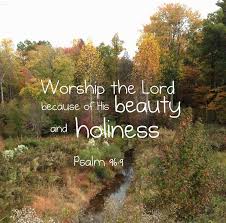 The Holiness of God by Art Lindsley, Ph.D.,
C.S. Lewis Institute Senior Fellow
The Holiness of God by Art Lindsley, Ph.D.,
C.S. Lewis Institute Senior Fellow
One of the most important attributes for understanding God and ourselves is God’s holiness. When we catch a vision of God’s holiness, we can regard many things in our lives as holy. When we lose a sense of God’s holiness (as many have), then we lose the realization that anything is holy or unholy. In this latter case, we also lose a sense of our own sinfulness, our need for God’s grace, and the desperate plight of our culture.
The Hebrew word for holy is quadosh, and the Greek word is hagios. In both cases, the meaning is separateness or being set apart from that which is unclean. An encounter with God always produces awe and dread that leads to separation from sin.
In Isaiah 6:1-8, we see Isaiah’s vision of God in the temple. He sees the Lord “sitting on a throne lofty and exalted” (vs. 1). Seraphim surround Him calling to each other, “Holy, Holy, Holy, is the Lord of hosts, the whole earth is full of his glory” (vs. 3). This triple repetition of a divine attribute is without parallel in the rest of the Bible. Scripture never says that God is “justice, justice, justice” or even “love, love, love,” but it does say that He is “holy, holy, holy.” The Hebrew does not have a grammatical way to express the comparative or the superlative (i.e., holier or holiest). The way it stresses the importance of something is by repetition. For instance, Genesis 14 describes a battle between various kings. At one point the kings of Sodom and Gomorrah flee and fall into the “tar pits” (vs. 10). In order to indicate the size and extent of these “tar pits,” the Hebrew just repeats the word “pit.” These “tar pits” are the “pit, pits.” In other words, these are the pitiest pits you could find anywhere.
Similarly, when God is described as “holy, holy, holy,” it underlines his utter purity. He is set apart, One who inspires awe and is worthy of worship.
The foundations of the temple start to tremble (vs. 4) and so does Isaiah himself. He cries out, “Woe is me, I am ruined! Because I am a man of unclean lips and I live among a people of unclean lips” (vs. 5). This is the only time in Scripture that
a prophet pronounces the prophetic judgment “woe” on himself. As Isaiah encounters God’s holiness, he is acutely aware of his sin and the sinfulness of the society around him. Any vision of God’s holiness leads to a sense of our own sin and makes us sensitive to the unholiness of the culture around us.
Isaiah is also particularly aware of the deficiency in his speech and the way of speaking around him. The central passage in Romans 3 that describes the pervasiveness of our sin also emphasizes the “lips.” “There is none righteous, not even one...none who seeks for God...none who does good, not even one” (Rom. 3:10-12). It goes on to speak of the throat as an “open grave” (vs. 13), “tongues...deceiving” (vs. 13), lips have the “poison of asps” (vs. 13). The mouth contains “cursing and bitterness” (vs. 14). This emphasis ought to lead us to examine what comes out of our mouths, and to reflect on the unholy ways our culture influences speech.
However, if Isaiah was simply left with this crushing sense of sin, he would be unfit for the ministry he was called to pursue. So God sends a seraphim with a burning coal from the altar to touch Isaiah’s lips (vs. 6). In this way, Isaiah is told that “your iniquity is taken away, and your sin is forgiven” (vs. 7). Then (and only then) the Lord asks, “Whom shall I send, and who will go for us?” (vs. 8). Isaiah responds, “Here am I, send me!” (vs. 8). When Isaiah responds to God’s call, he is under no illusion about the degree of his sinfulness. He is utterly dependent on God’s grace. In a similar way, when we each see our own sin, that does not make us unsuitable for ministry, but a candidate desperately desiring God’s grace. In fact, if we feel worthy of the ministry to which we have been called, we should beware.
Unless we grasp God’s holiness, we will no longer be “amazed” at his amazing grace. It is easy to take God’s grace for granted, and this is commonly done today. Rather than assuming God’s holiness and being amazed by His grace, we take for granted His grace and are amazed and offended by his holy wrath and judgment. Many presume on God’s grace by doing that which they know is wrong, rather than being deterred by a fear of His holiness. I’ve known significant leaders in the Christian community who went into adulterous affairs, presuming they would ask for forgiveness later. One leader of a college fellowship was greatly offended because he was asked to step down from his leadership position because he was living with his girlfriend (unmarried). This kind of presumption might be evidence that the person is unsaved (Matt. 7:21-23), or that they are unaware of the consequence of their sin or of the reality of God’s discipline (Hebrews 12:5-14).
Why Should We Be Holy?
Our motive for being holy is not primarily to follow rules and laws, but to follow God Himself. We are to strive to be holy, “pursuing...the holiness without which no one can see the Lord” (Hebrews 12:14). But how can we be motivated to be holy? Why should we be holy? The answer to this question gives us a profound insight into what our motives should be.
We are to be holy because God is holy. I Peter 1:14-16: “As obedient children, do not be conformed to the former lusts which were yours in your ignorance. But like the Holy One who called you, be holy in all your behavior; Because it is written, ‘you shall be holy, for I am holy.’ ” The reason we are to be holy is because God is holy. We are to obey (vs. 14) not just because the Bible tells us to do so, but because of who God is—the nature of His character.
This also means that God’s commands are not arbitrary. In secular philosophy classes, the professor might raise a dilemma to put Christians on the spot: “Does God command something because it is good or is it good because God commands it?” Either side of the dilemma seems unacceptable. In the first case, God commands something because it is good—it seems that there is something higher than God; namely, “the good.” In the latter case— something is good because God commands it— smacks of arbitrariness in God. (God could have been evil and evil, good.)
What is the answer to the dilemma? It is that God is a law unto Himself. In other words, God’s commands are really a reflection of His nature. He commands the good because He is good, holiness because he is holy, justice because he is just, love because he is loving and so on. God’s commands also correspond to our own nature, being made in the image of God. God’s commands are not unduly restrictive, but show us how to be free and whole. They are like God’s “instruction manual” or God’s “prescription” for how we are to run the human “machine.” For instance, if you put water in the gas tank of your car, it not only violates the instruction manual for the type of fuel to be used, but it will make the car run erratically or even shut down. Again, if you don’t read the instructions for a medication, it might lead to a harmful or lethal drug interaction. God’s commands show us the way to live fully and joyously. To violate God’s commands means not only violating biblical teaching and offending God’s holy nature, but also breaking ourselves. It’s just like running full speed into a concrete wall—we do more damage to ourselves than to the wall. God certainly reveals His instruction about what holiness means in the Bible, but the ultimate reason for our obedience is the character of God Himself. The more we meditate on Who God is, the more we see to be of course, we are not going to be infinite, eternal, omnipresent, or self-existent. But we can emulate God’s goodness, justice, holiness, and love.
The Loss of the Holy
As our culture loses a sense of God’s holiness, we lose a sense that anything is holy. When we lose a vision of the beauty of His holiness, then there is an ugliness that creeps from the inside out, touching our relationships, churches, workplaces, buildings, and ways of life. In the Old Testament there were holy places and holy spaces. The ground around the burning bush was holy (Ex. 3:5). The temple was holy (Isaiah 64:11; Jonah 2:4; Habakkuk 2:20). There are holy utensils (I Chronicles 9:29), garments (Exodus 29:21; Leviticus 16:4), foods (I Samuel 21:4; Nehemiah 7:65), oil (Exodus 30:25, 31; Numbers 35:13; Ezekiel 42:13). The holiness of God sets apart concrete things as holy. Though we are not bound by the ceremonial law (fulfilled in Christ), we are to now set apart all aspects of our lives as holy unto the Lord. There is for us a holy meal (the Lord’s supper), holy baptism, holy hands (I Timothy 2:8), and a holy calling (II Timothy. 1:9). We are now to be holy in body and spirit (I Corinthians 7:34) and to offer our bodies as a holy sacrifice (Romans 12:1). We are to be ones described in Scripture as “saints” (literally “holy ones”) (I Corinthians 1:2). And as the body of Christ, we are to be a holy nation (I Peter 2:9) in the world. In other words, every aspect of our lives is to be dedicated as holy unto the Lord. There is a passage in Zechariah 14:20-21 that prophesies this extension of the holy from particular objects to all of life. These final two verses of Zechariah say, “ In that day there will be inscribed on the bells of the horses ‘HOLY TO THE LORD’ and the cooking pots in the Lord’s house will be like the bowls be- fore the altar. And every cooking pot in Jerusalem and in Judah will be holy to the Lord of hosts...” The “bowls before the altar” (vs. 20) might be considered
holy utensils because of their proximity to the holy altar. But there will come a time in the future, Zechariah prophesies, where every cooking pot in the Lord’s house will be holy (not just those by the altar). In fact, in that day every cooking pot in Jerusalem and Judah will be holy (not just those in the Lord’s house). This holiness will be so pervasive that even the smallest object such as bells on a horse’s neck will be inscribed as “HOLY TO THE LORD.” To truly regard every good created thing as holy requires a renewed vision of the beauty of God’s holiness. Without this perspective, one area after the other will be stripped of the words, “Holy to the Lord.”
Today, as never before, we need holy marriages, holy families, holy houses, holy hospitality, holy friends, holy vocations, etc. But these can only come as we gain a vision of God and his holiness that captivates us and transforms our vision from the inside out to all areas of life. Let us then devote ourselves fully to seeking to know God’s holiness and to becoming individually and corporately what we were created to be—holy people worshiping a Holy God.
--Art Lindsley

Notes by Lambert Dolphin


Originated 2/14/05
Expanded 11/12/19
Edited by AZL 11/21/19
October 16, 2020
May 23, 2021
December 14, 2022